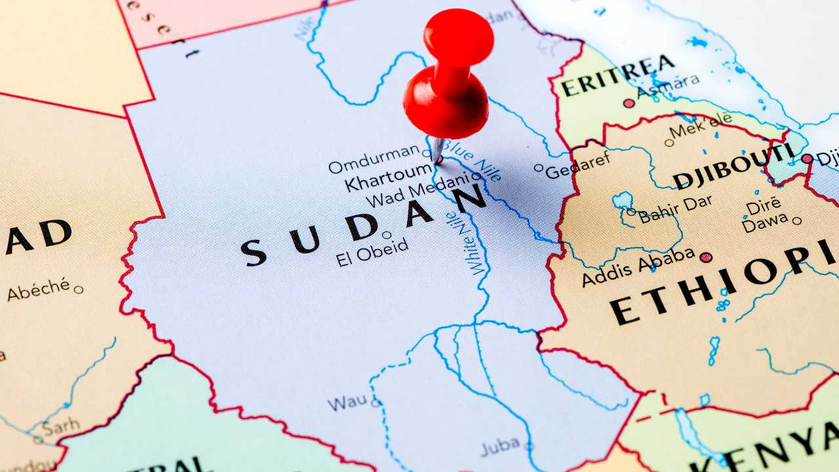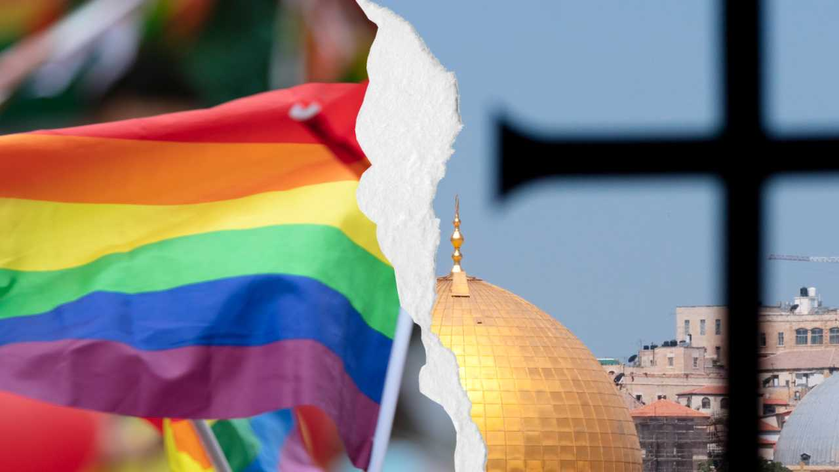The State Department will hold a news briefing on Tuesday U.N. officials said that one side in the Sudan conflict has seized control of a national health lab in the capital of Khartoum that holds biological material, calling it an “extremely dangerous” development.
The announcement came as officials warned that more refugees could flee Sudan despite a cease-fire between rival forces.
According to the State Department, "Following intense negotiation over the past 48 hours, the Sudanese Armed Forces (SAF) and the Rapid Support Forces (RSF) have agreed to implement a nationwide ceasefire starting at midnight on April 24, to last for 72 hours. During this period, the United States urges the SAF and RSF to immediately and fully uphold the ceasefire. To support a durable end to the fighting, the United States will coordinate with regional and international partners, and Sudanese civilian stakeholders, to assist in the creation of a committee to oversee the negotiation, conclusion, and implementation of a permanent cessation of hostilities and humanitarian arrangements in Sudan. We will continue to work with the Sudanese parties and our partners toward the shared goal of a return to civilian government in Sudan."
The fighting has plunged Sudan into chaos, pushing the already heavily aid-dependent African nation to the brink of collapse. Before the clashes, the U.N. estimated that a third of Sudan’s population, about 16 million people, needed assistance..
The World Health Organization warned that there is now a ‘huge biological risk” after fighters in Sudan occupied a central public health lab on Tuesday.
Dr. Nima Saeed Abid said that fighters in the Sudanese capital city of Khartoum have seized the National Public Health Laboratory on Tuesday before technicians were able to secure the biological materials and samples located inside.
Some of the samples that are held in the laboratory include samples of diseases such as polio and measles, which according to Abid, create an “extremely, extremely dangerous situation.”
“There is a huge biological risk associated with the occupation of the central public health lab by one of the fighting parties,” the doctor said. “This is the main concern: no accessibility to the lab technicians to go to the lab and safely contain the biological material and substances available.”
While expressing the risks of the situation in Sudan, the doctor declined to specify which side had seized the lab.
Abid added on the call that at least 459 people had been killed in fighting in Sudan and 4,072 injured, Reuters reported.
The White House announced late on Saturday that the United States military has successfully evacuated the American government employees from the embassy in Khartoum. The diplomats were then transported to Djibouti, from where they flew to Ramstein Air Force Base in Germany.
State Department officials said that over 100 troops, all of whom were special forces, had executed the evacuation.
Less than 100 people were evacuated from the country, including the Marines who were attached to the embassy. However, the American civilians in the country have not been evacuated.
President Joe Biden said that he was “receiving regular reports from his team on their ongoing work to assist Americans in Sudan, to the extent possible. We are also working closely with our allies and partners in this effort.”
“I am proud of the extraordinary commitment of our Embassy staff, who performed their duties with courage and professionalism and embodied America’s friendship and connection with the people of Sudan,” Biden said in a statement. “I am grateful for the unmatched skill of our service members who successfully brought them to safety.”
"The evacuation of the U.S. Embassy in Khartoum, Sudan, was handled professionally and with precision, and U.S. service members in the region stand ready to help the State Department if needed," said Pentagon Press Secretary Air Force Brig. Gen. Pat Ryder.
National Security Council spokesperson John Kirby said that the operations would only include government employees and that American civilians are responsible for their own safety, and would have to make their way out of the country on their own.
There are still an estimated 16,000 Americans in Sudan.
"In terms of next steps, U.S. Africa Command and the Department of Defense continue to work closely with [the] State Department, which has the lead for helping American citizens wishing to depart Sudan," Ryder said. "Those efforts include providing intelligence, surveillance and reconnaissance capabilities to observe potential land routes out of Sudan to detect threats, and positioning naval assets off the coast of Sudan should they be needed."
The United Nations humanitarian office (OCHA) has reduced its activities in parts of Sudan after at least five aid workers were killed in the fighting.
“In areas where intense fighting has hampered our humanitarian operations, we have been forced to reduce our footprint,” Jens Laerke, spokesperson for the OCHA, said. “But we are committed to continue to deliver for the people of Sudan.”
Laerke said the OCHA team had relocated from the capital city of Khartoum, and would now lead humanitarian efforts out of the Port of Sudan.
On April 22, the U.S. Embassy in Khartoum suspended its operations, and the Department of State ordered the departure of U.S. direct-hire employees and eligible family members from the Embassy in Khartoum due to the continued threat of armed conflict in Sudan. The U.S. government cannot provide routine or emergency consular services to U.S. citizens in Sudan, due to the current security situation.
Armed conflict is ongoing throughout Sudan and includes heavy fighting between various political and security groups. The situation is violent, volatile, and extremely unpredictable, particularly in the capital city Khartoum. Electrical and communication disruptions, including internet and cell phone service, can occur at any time. Khartoum International Airport and Sudan’s border with Chad are currently closed.
Country Summary: Armed conflict, crime, such as kidnapping, armed robbery, home invasion, and carjacking occur.
Members of known terrorist groups and individuals sympathetic to these groups in Sudan could attack with little or no warning, targeting foreign and local government facilities, and areas frequented by Westerners.
Violence continues along the border between Chad and Sudan and areas that border South Sudan (including the disputed Abyei area). Armed opposition groups are active in Central Darfur state and parts of Blue Nile and South Kordofan states. Intercommunal clashes can occur throughout the country and can result in the declaration of localized States of Emergency.
Read the country information page for additional information about travel to Sudan.
If you decide to travel to Sudan:
- Exercise extreme care in all parts of the country, including Khartoum.
- Visit our website for Travel to High-Risk Areas.
- Have a personal emergency action plan that does not rely on U.S. government assistance.
- Monitor local media for breaking events and be prepared to adjust your plans.
- Be aware of your surroundings.
- Stay alert in areas frequented by Westerners.
- Review your personal security plan and visit our page on travel to high-risk areas.
- Draft a will and designate appropriate insurance beneficiaries and/or power of attorney.
- Discuss a plan with loved ones regarding care/custody of children, pets, property, belongings, non-liquid assets (collections, artwork, etc.), funeral wishes, etc.
- Share important documents, log-in information, and points of contact with loved ones so that they can manage your affairs if you are unable to return as planned to the United States. Find a suggested list of such documents here.
- Develop a communication plan with family and/or your employer or host organization so that they can monitor your safety and location as you travel through Sudan. This plan should specify who you would contact first, and how they should share the information.
- Avoid demonstrations and public gatherings. Even events intended to be peaceful can become violent.
- Enroll in the Smart Traveler Enrollment Program (STEP) to receive Alerts and make it easier to locate you in an emergency.
- Follow the Department of State on Facebook and Twitter.
- Review the Country Security Report for Sudan.
- Prepare a contingency plan for emergency situations. Review the Traveler’s Checklist.
On Saturday, the United States Under Secretary for Management Ambassador John Bass stated that "The widespread fighting, as you know, has caused significant civilian deaths and injuries. There’s been substantial damage to essential infrastructure, including, importantly, the civilian airport in the heart of the city. And so as a result of the intensity of the conflict and the challenges that our diplomatic personnel were experiencing in conducting basic operations and the uncertainty about their – availability of key supplies like fuel and food going forward, we reluctantly decided it was time to suspend operations; and with tremendous support from our professional military colleagues at DOD, we evacuated all of the U.S. personnel and dependents assigned to Embassy Khartoum there under the responsibility of the Secretary of State."


















